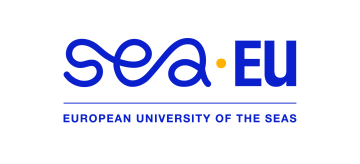Izabela Morska, Ph.D. Literature scholar. Studied with Chana Bloch, Naomi Seidman, and Cynthia Scheinberg at UC Berkeley and Mills College, Oakland, CA. Working at the intersection of Jewish, gender, and queer studies, she discussed the figures of conversion in the 19th century Polish literature in her book of literary criticism Obszary odmienności (Realms of otherness) (Gdańsk 2007) and the loss of Yiddishland, jointly with the ideal of “soft” Jewish manhood, in Glorious Outlaws: Debt as a Tool in Contemporary Postcolonial Fiction (2016). She participates in panels and discussions on Polish-Jewish relations, such as Jewish Themes in Contemporary Polish Literature at the Conference on Polish Literature since 2009, UCL London (2011) or the presentation of Urche Nachalnik at Pioneering Jews: Cowboys, Rebels, and Trailblazers, Western Jewish Studies Conference, Denver, CO (2009). Her poetry appeared, i.a., in Scattering the Dark: An Anthology of Polish Women Poets (Kovacik, ed., 2016). Her participation in the 2017 Beutel Seminar for Progressive Jewish Leadership in Jerusalem provided a direct incentive to establish the Jewish Studies Research Group in 2017.
Jewish writers and such authors who comprehensively approach Jewish subjects in English and Polish literature, or who present Jewish themes in the context of modern times. The diversity of contemporary Jewish diaspora in Poland. Documentation and reinterpretation of the Yiddishland legacy . Analysis of Jewish culture and its extensions in external cultures. British, American, Israeli and world iterature created by authors influenced by or related to Jewish culture. Cooperation with leading European, American, and Israeli researchers in the field of Jewish Studies. Jewish tradition understood as a history of questioning and debate. Polish literature open to Jewish subjects. The complexity of post-Holocaust contemporary life: orthodoxy, reform, and progressive movement. Re-defining of Jewish identity: secularization and Zionism. Live Jewish and Israeli culture. Common life stories. Sephardic Jews. Activities aimed at reviving Yiddish and Ladino. Linguistic research on the mutual influence of Jewish languages (Hebrew, Yiddish, Ladino, etc.) as well as their impact on the languages of the inhabited countries (e.g. the influence of Yiddish on Polish and vice versa). Symbolism of the alphabet and Kabbalah. The importance of ecology in Jewish culture. Polish-Jewish cultural interactions of the interwar period. Jewish childhood. Visualization of the Holocaust. Multi-perspective Shoah analyses. Works in Jewish languages with particular emphasis on music. Jewish threads in world cinema. The development of Israeli cinema, including presentations of masculine ideals and queer themes in connection with the rise of Israel, Zionism, and secularism. Jewish and Israeli queer literature. Jewish feminism. The role of women in Jewish culture. Yiddishland culture, literature and ethnography, including cinematography and the Yiddish theater in Poland.
Established only in April 2017, our Jewish Studies Research Group is a new addition to already diverse research projects and divisions at Gdansk University. We hope to communicate our interests and current activities within an informal, lively, and concise formula of a blog. Danciger Bleter’s name vaguely references a variety of small publications in Yiddish in the interwar period.
Morska, Izabela. "The Yiddish Policemen's Union: Alaska Made in Poland." American Experience-The Experience of America. Peter Lang 2013.
Morska, Izabela. Glorious Outlaws: Debt as a Tool in Contemporary Postcolonial Fiction. Peter Lang 2016.
Morska, Izabela. "Creative Writing: A Tool for Exercising Civil Presence." Academia in Fact and Fiction. Peter Lang 2016.
Morska, Izabela. Znikanie. Znak 2019.
Morska, Izabela. "Zygmunt Mycielski's Blues, or How Some Testimonies Related to Queer History Simply Vanish into Thin Air." Go East! LGBTQ Literature in Eastern Europe, Editors: Andrej Zavrl, Alojzija Zupan Sosič, Ljubljana University Press, Faculty of Arts, Ljubljana, 2020.
